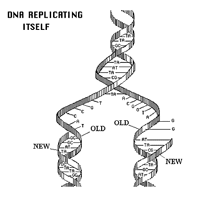Transhumanism has become a well-flogged topic of conversation with all the discussion of the Singularity. I don’t know if we’ll ever be able to transcend biology and mortality, but I do know that we would benefit from the wisdom of our greatest minds if we could preserve them. Of course, we already do this, in the sense that our thinkers and innovators left behind their words and discoveries to guide us. From Plato to Leonardo da Vinci to Isaac Newton, we are the beneficiaries of a deep wealth of human knowledge and experience. Our entire civilization, even if we take it for granted, is the cumulative result of every human contribution. Our culture is like an immortal organism, while our individual lives are its constituent cells.
In A Martian Time-Slip, robotic teachers based on important cultural figures lead classes. Although this was presented in a typically unsettling Philip K. Dick fashion, it is an interesting idea. If you could emulate the personality and knowledge of our best minds, wouldn’t it have some benefit? In the Star Trek universe, characters routinely consult with historical figures through the holodeck. Provided we had the technical ability to present a human simulation, how would you create a model of a distinct personality? What would I have to know about you to create a simulation that would reasonably behave as you would in any given situation or circumstance?
 Life started out with a limited ability to create new versions with significant variation. In the beginning, presumably only a handful of different organisms existed (maybe even an ur-lifeform, or grandfather organism) and these tended to be unicellular with minute amounts of genetic information. As life forms evolved and grew more complex, they
Life started out with a limited ability to create new versions with significant variation. In the beginning, presumably only a handful of different organisms existed (maybe even an ur-lifeform, or grandfather organism) and these tended to be unicellular with minute amounts of genetic information. As life forms evolved and grew more complex, they